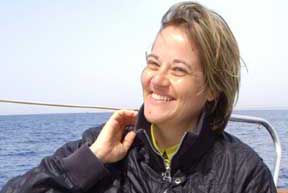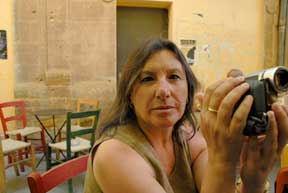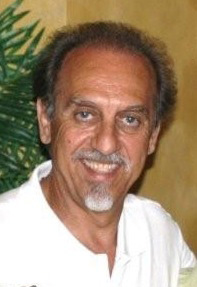|
|
Directors’ bios
Bushra Azzouz Directors’ Statement (PDF Link) Many of the film’s subjects were children during the main period of conflict and relate both the horrors of war and the innocence they were able to hold onto under the most devastating of circumstances. Some of the women who had lived with the status quo for 30 years were suddenly feeling they could participate in the making of history. Others were grass-roots activists who had worked hard to change the political discourse and create ongoing dialogue across the divide. Stories, insights, feelings, and struggles began to pour out. What developed in the process of making the film and collaborating with the women of the island was a process of synthesis, definition, and redefinition as the conflict on the island was articulated and silenced, understood and misunderstood, written, erased, and rewritten. It was a challenge to try to represent multiple, at times opposing, perspectives of history and the different women’s experiences without negating any of the felt injustices, but hearing all of them. Yet, we also discovered in the process the different threads that bound the women together - the sense of home, the love of place, the need for personal safety, the emotional and political price of war, and the personal tolls exacted by occupation, partition and genocide for both Greek Cypriots and Turkish Cypriots. In the editing room, we tried to understand through the women’s stories the complexities, hesitations, and dynamics of conflict that can prevent momentum towards change, or can support it. We both knew first hand the experience of ethnic, religious and national conflict and had a high stake in understanding, in collaboration with the women in the film, how one can process pain and anger. They watched different edits of the film and articulated what was missing. This meant shooting additional footage to incorporate stories, insights, perspectives that they needed to voice— understandings they were willing to share in the intervening years. The process allowed all to break through persistent political myths and move away from personal fortresses built by past wounds to a new engagement. In this long back and forth, the themes of the film coalesced as the conversations deepened and the friendships grew. Like the island itself, we were riding the swells of the sea and bracing against the island’s political terra firma. The process of making this film was as important as the final project and transformed everybody involved. It was a process of dialogue between the filmmakers, the filmmakers and the women, the women among themselves and with the broader community. It was based on relationships, love and the spirit of collaboration, which made it possible to resolve challenging and conflictual issues for the creation of the film, but also to benefit the broader community dialogue. The conversations that followed the screenings in the north and the south of Cyprus demonstrated the need of Cypriots to share their histories among the two communities, to hear and acknowledge each other’s experiences and to educate each other. This need cannot be resolved by institutional change alone. International audiences also identify with the women’s struggle and find inspiration in their efforts to live together again. Research Consultant For over two decade, he has been playing a leading role in the development and growth of a citizen-based peace movement in the ethnically divided island of Cyprus and in Greek-Turkish relations. He has lectured widely in the USA and overseas, and has been a consultant to various organizations of civil society and government. As an academic, he has published numerous works on peace and conflict issues, focusing on Cyprus, nationalism and interethnic conflict, peace building and the European Union. |


